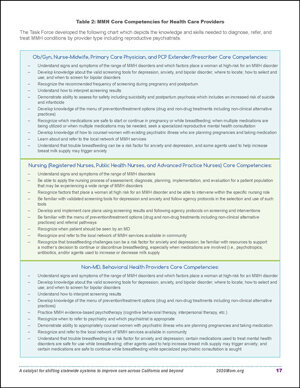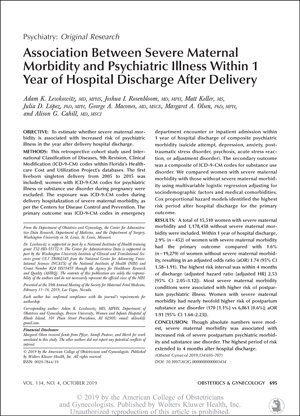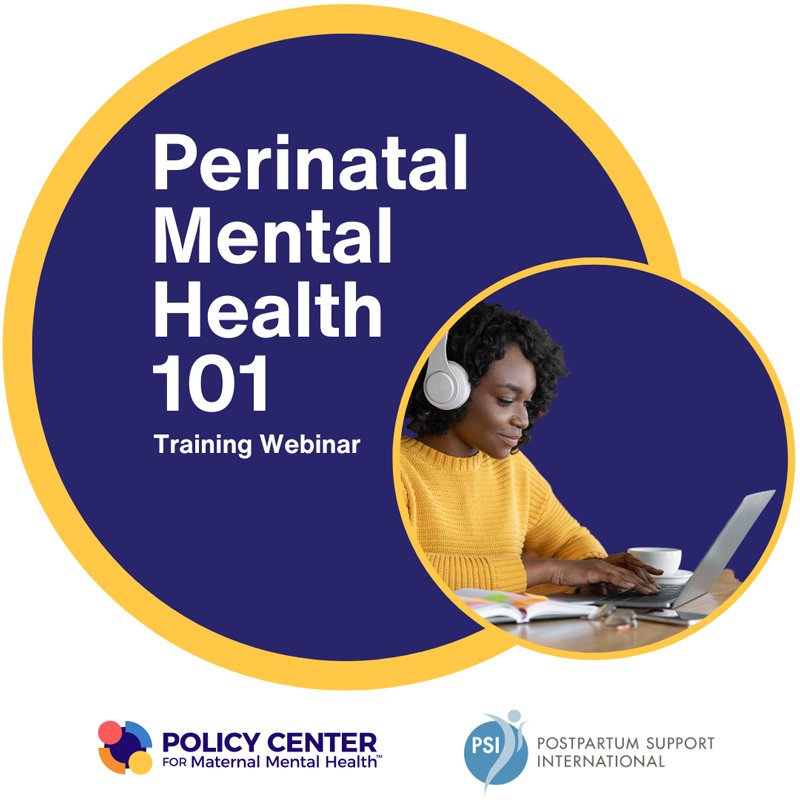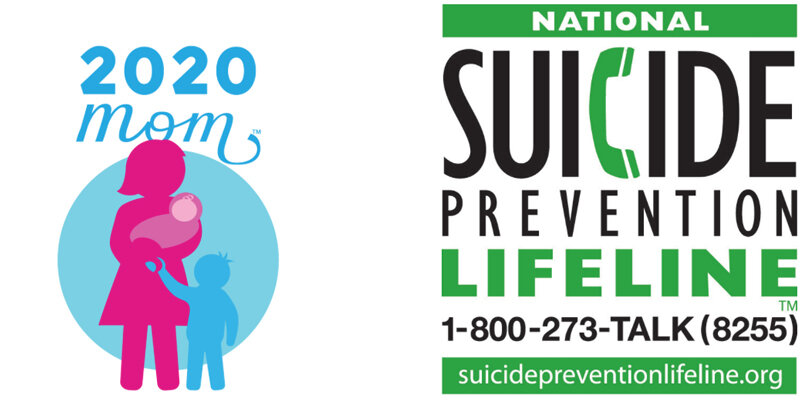Resources for Providers
Screening Tools
Find screening tools to assist with diagnosing MMH disorders here.
American College of Obstetricians and Gynecologists (ACOG) Maternal Mental Health Tool Kit
What Every Provider Type Should Know and Do for MMH
MMH Core Competencies for
Health Care Providers
A Menu of Prevention and Treatment Options
Continuum of Care
Guide to Brief CBT
Implementing MH Collaborative Care in Private Practices and Beyond
Complimentary Collaborative Care Training for Psychiatrists through the APA
Association Between Severe Maternal Morbidity and Psychiatric Illness Within 1 Year of Hospital Discharge After Delivery
Setting the Standard for
Holistic Care of and for
Black Women
Obstetric Provider Services Billing and Reimbursement Guide
Billing Resources
Billing & Coding Guide for Women’s Preventive Services
The U.S. Women’s Preventive Services Initiative’s 2023–24 obstetric provider coding guide was recently updated to include the Initiative’s latest recommendations, including screening for maternal mental health disorders.
This guide acts as a tool to assist practices with coding and billing preventive services for women and was developed in consultation with leaders at the American College of Obstetricians and Gynecology. The guide provides all the information clinicians need to properly code for WPSI recommendations, including ICD-10 codes and coding scenarios.
Coding for Perinatal Depression
Care Coordination Billing Coding
Share Your Maternal Mental Health Care/Claim/Payment Denial Story
Though many women have health insurance at the time of their maternal mental health challenges, insurance can still be a significant barrier to care.
If you've experienced trouble providing care due to insurance company policies, please take 2 minutes to share those experiences here. Your stories will help us drive change.
Recommended Reading for Suffering and High-risk Families and Clinicians:
Looking After your Mental Health – Things you can do to Support your Mental Wellbeing
Ireland’s Health Service Executive’s website provides information on Depression, Lifestyle, Sleep, Stress and Support.
Beyond the Blues: A Guide to Understanding And Treating Prenatal And Postpartum Depression
By: Pec Indman & Shoshanna Bennett
The Postpartum Husband: Practical Solutions for Living with Postpartum Depression
By: Karen Kleiman
The Pregnancy and Postpartum Anxiety Workbook: Practical Skills to Help You Overcome Anxiety, Worry, Panic Attacks, Obsessions, and Compulsions
By: Pamela Wiegartz, PH.D, Kevin Gyoerkoe, PSY.D.
Cognitive Behavioral Therapy for Insomnia During Pregnancy
By: MGH Center for Women's Mental Health
Sleep problems are common during pregnancy, and for some pregnant people, non-pharmacologic options can be effective. CBT specific for insomnia (CBT-I) involves 6-8 sessions dedicated to this issue and has also been delivered through mobile or web-app-based platforms. The principles of CBT-I include cognitive restructuring, improving sleep hygiene and sleep environment, stimulus control therapy, relaxation training, and potentially sleep restriction during treatment. Increasing the tools for rejuvenating sleep can be helpful with mood disorders during pregnancy.
Recommended Reading for OBGYNs, Psychiatrists and More:
Mood and Anxiety Disorders During Pregnancy and Postpartum: Review of Psychiatry
By: Lee S. Cohen
Perinatal Mental Health 101 Webinar
Learn about the various Maternal Mental Health Disorders, the differences between them, risk factors and treatment options. The course is designed for providers, administrators and public health employees, though all are welcome. Listen to a previously recorded webinar here. For a list of the resources shared during the training click here. Upcoming live webinars are listed here.
National Curriculum in Reproductive Psychiatry (NCRP) Trainee Fellowship
Applications are being accepted for a free comprehensive online, interactive curriculum designed to teach reproductive psychiatry to mental health professionals – either within an educational program or self-guided. Learn more here.
Free E-Learning Program on Cultural Competency for Behavioral Health Professionals
The U.S. Health and Human Services Office of Minority Health (OMH) program, available via OMH’s Think Cultural Health website, is designed to develop behavioral health providers' knowledge and skills related to culturally and linguistically appropriate services (CLAS). OMH encourages all certified counselors, nurses, psychiatrists, psychologists and social workers to take this program and earn up to five continuing education credits at no cost.
The program’s 4 courses cover:
• Connections between culture and behavioral health
• The impact of cultural identity on interactions with clients
• Ways to engage, assess and treat clients from diverse backgrounds
Learn more about the program | Spread the word - access the toolkit
Are you looking for other free e-learning programs on cultural competency? Check out the suite of Think Cultural Health e-learning programs at thinkculturalhealth.hhs.gov/education
The American College of Obstetricians and Gynecologists (ACOG) Offers Resources for Ob-GYNs and Women’s Health Care Providers
• Webinar addressing Perinatal Mood and Anxiety Disorders - Strategies for Women's Health Care Providers.
Visit the Women’s Health Care Physicians page for more resources like:
• Committee Opinion: Screening for Perinatal Depression
• Practice Bulletin: Use of Psychiatric Medications During Pregnancy and Lactation (members only)
Developing a Treatment Plan and More
Early Episode Psychosis Topic Library
Early-episode psychosis is a prime time for medical intervention, which may include multimodal therapies, case management, and a focus on self-determination. Treatment focuses on enabling individuals to move on from the acute impact of a psychotic episode and chart the course of their own recovery.
In the Early Episode Psychosis Topic Library on PsychU, you will find resources about treatment interventions and other information. View all resources.
Suicide Prevention Resources
The American Foundation for Suicide Prevention has resources to assist with setting and communicating policy priorities on suicide prevention, as well as infographics to share.
Read about CDC’s suicide prevention strategic plan, grounded in data, science, action, and collaboration.
Explore CDC’s Preventing Suicide: A Technical Package of Policies, Programs, and Practices for strategies and approaches with the best available evidence to prevent suicide.
Maternal Suicide: What All Providers and Advocates Should Know, a webinar covering the latest on suicide prevention and facts about maternal suicide, including:
A general overview of suicide and COVID related increases
Maternal mental health statistics including maternal suicide
General crisis prevention efforts
Suicide prevention efforts
Safety Action Series
Reproductive Psychiatry: Navigating Treatment Options in Maternal Mental Health
Objectives
Review the importance of collaborative care in maternal mental health, i.e. among obstetric providers, psychiatrists, and social workers
Discuss approaches to maternal mental health screening and medications
Consider important next steps when test results come back positive for perinatal/postpartum depression and anxiety
Explore strategies for providing personalized care to every woman, including in cases of trauma
Speakers
Claire Brandon, MD
Board Certified Psychiatrist
Consultation Liaison Psychiatry
New York City, New York
Randi Delirod, MA, LMSW
Behavioral Health Clinician
Mental Health Service Corps
New York City, New York
Slides and Audio Recording of teleconference.
Zulresso, the First Medicine Specifically Approved by the FDA for the Treatment of Postpartum Depression
Healthcare settings that elect to administer Zulresso must enroll and become certified in the U.S. Food and Drug Administration’s (FDA) Risk Evaluation and Mitigation Strategy (REMS) program. The REMS is required by the FDA to ensure the potential benefits of therapy outweigh its risks. Zulresso is available only through a restricted program under a REMS called the Zulresso REMS because excessive sedation or sudden loss of consciousness can result in serious harm. REMS certified centers will be trained, complete a knowledge assessment, officially enroll, and then implement necessary processes and procedures to administer the therapy.
Learn more about certified sites by calling 844-4-sagerx or visit SageCentralSupport.com.
Complex PTSD, New Diagnosis/Classification (ICD-11) by the World Health Organization
Case Study: The Role of Community Health Workers in Addressing Inequities
This white paper outlines best practices and solutions for health departments and health systems to engage community health workers to address equity gaps.
UK Resource: PerinatalWorkforce Competency Framework
This framework identifies the skills required and helps care teams to assess their training needs.
The tool allows professionals to access the competencies in the framework relevant to their role and inform them of which competencies they require in order to fulfill the responsibilities of their role.
Domestic Violence Prevention
Domestic/intimate partner violence (IPV) is a pervasive problem in virtually all countries, cultures, classes and income groups. According to the National Resource Center on Domestic Violence, women who have experienced IPV are twice as likely to experience depression, almost twice as likely to abuse alcohol, and 16 percent more likely to have a low-birthweight baby.
Prevention: "Mothers and Babies" Online Program
This intervention is recommended by the U.S. Preventive Services Task Force for mother's who are at risk for maternal depression.
This online program teaches skills to manage changes in how patients you feel. The course is designed for pregnant women, new mothers, and those who want to learn how to support them.
The program is also available in Spanish.
Creating a Postpartum Plan
The "Check on Mom" resource helps expecting mothers plan for their postpartum, including putting supports in place and taking steps to protect and support their mental health.
AWHONN Clinical Practice: Respectful Maternity Care for Individuals with Substance Use Disorder (SUD) SBAR
SBAR is a technique that is typically used to frame conversations between health care providers regarding a patient’s condition and clinical status. SBAR in this circumstance is adapted to promote respectful and inclusive patient communication and care.
MotherToBaby: A One-Stop Interactive Resource on Medications in Pregnancy and Breastfeeding
MotherToBaby, a service of the Organization of Teratology Information Specialists (OTIS), specializes in answering questions about the safety/risk of exposures, such as medications, vaccines, chemicals, herbal products, substances of abuse, maternal health conditions, and much more, during pregnancy or breastfeeding. The no-cost information service is available to people who are pregnant and/or breastfeeding, their family members, health professionals, and the general public via chat, text, phone (toll-free 866.626.6847), and email in both English and Spanish. MotherToBaby also has more than 300 up-to-date evidence-based fact sheets about a variety of exposures. The latest fact sheets added include topics on monkeypox, COVID-19 vaccines, and Plan B One-Step®. Learn More.
Community Perspectives: The State of Black Maternal Mental Health
This report from the Shades of Blue Project, an organization dedicated to breaking cultural barriers in maternal mental health by raising awareness and providing support before, during, and after childbirth, provides insight from the community perspective about what can be done to change birth and maternal mental health outcomes for the better.
The 2023 BIPOC Mental Health Toolkit
Mental Health America’s 2023 BIPOC Mental Health Toolkit provides free, practical resources, including information about how an individual's culture and community impact their mental health, tips for community advocacy, and ways to build connections with others. In this toolkit, you can find factsheets, worksheets, resources, sample messages, sample images, posters, and more.


































